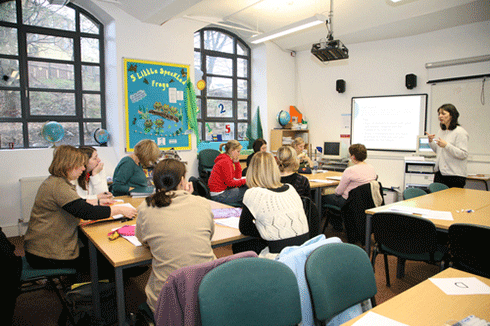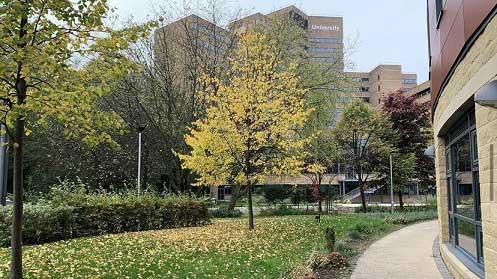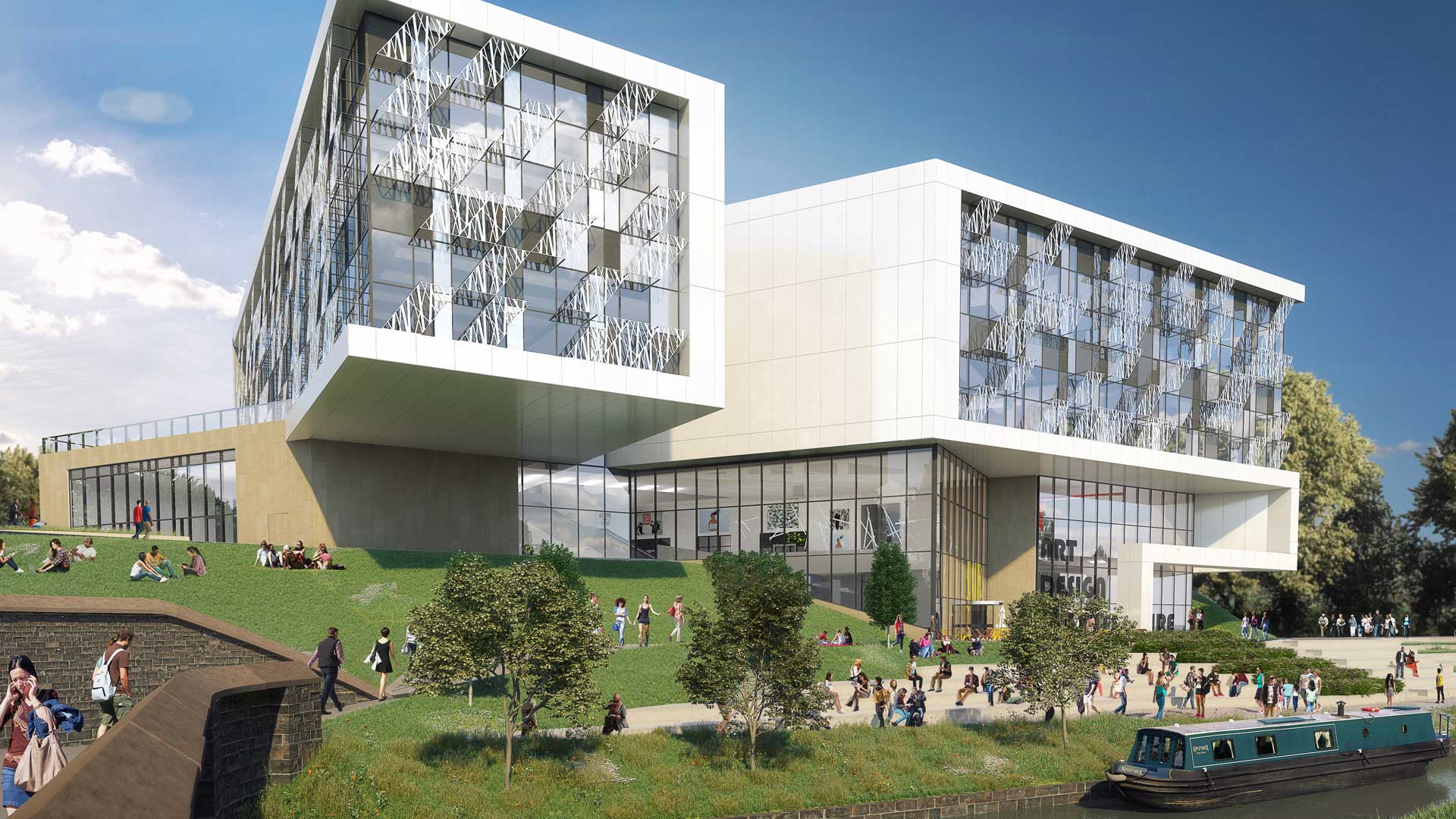
SDG 11: Sustainable Cities and Communities 2025 Report
SDG 11 - Sustainable Cities and Communities
Make cities and human settlements inclusive, safe, resilient and sustainable
The University of Huddersfield is committed to sustainability not only in the environment, but in preserving and sharing cultural heritage. We have created a greener, more accessible campus, promote walking, cycling, and public transport and offer flexible working options to reduce car use. We’re also building in smarter ways—using brownfield sites and aiming for the highest environmental standards in construction. We offer free public access to key heritage spaces ensuring that arts, history, and diverse community stories are safeguarded for future generations.
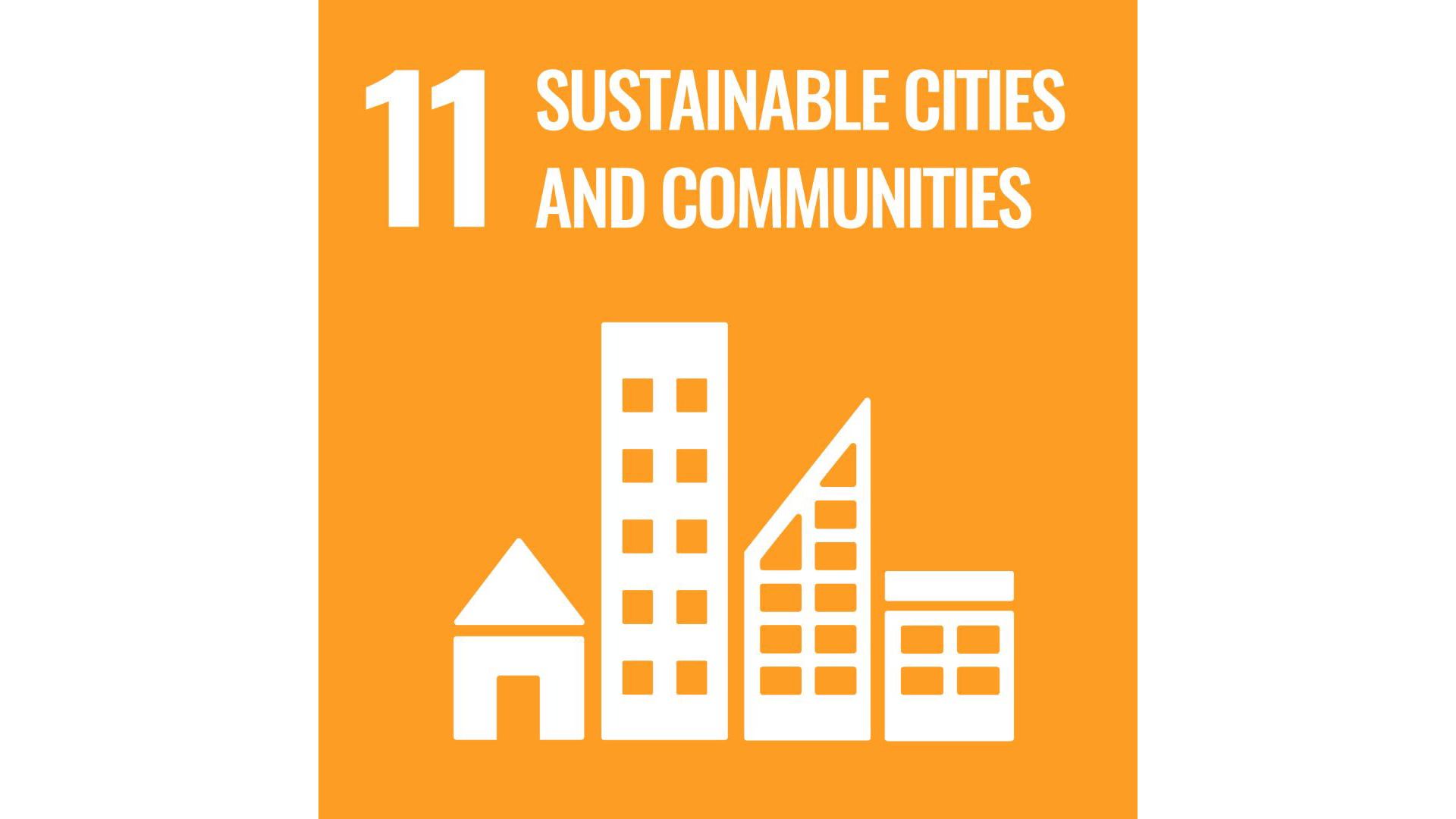
Learning for students
The University of Huddersfield is dedicated to educating our students on the importance of sustainable development. We are committed to enabling our educators to integrate education for sustainable development (ESD) into our teaching. This process is led by the Pro-Vice Chancellor for Teaching & Learning.
Most full-time undergraduate students are enrolled on to the Global Professional Award, which they are expected to complete alongside their degrees. In live workshops and through self-directed resources, students are taught about the importance of the Sustainable Development Goals (SDGs) in workplaces and wider society. They are required to reflect on their current and future engagement with the SDGs, and to consider the impact this can have on themselves and those around them, helping our learners to become truly global professionals.
Our Civil Engineering BEng and MEng courses also include a module on sustainable infrastructure engineering, where students gain an understanding of sustainable transportation and water infrastructure and its environmental considerations.
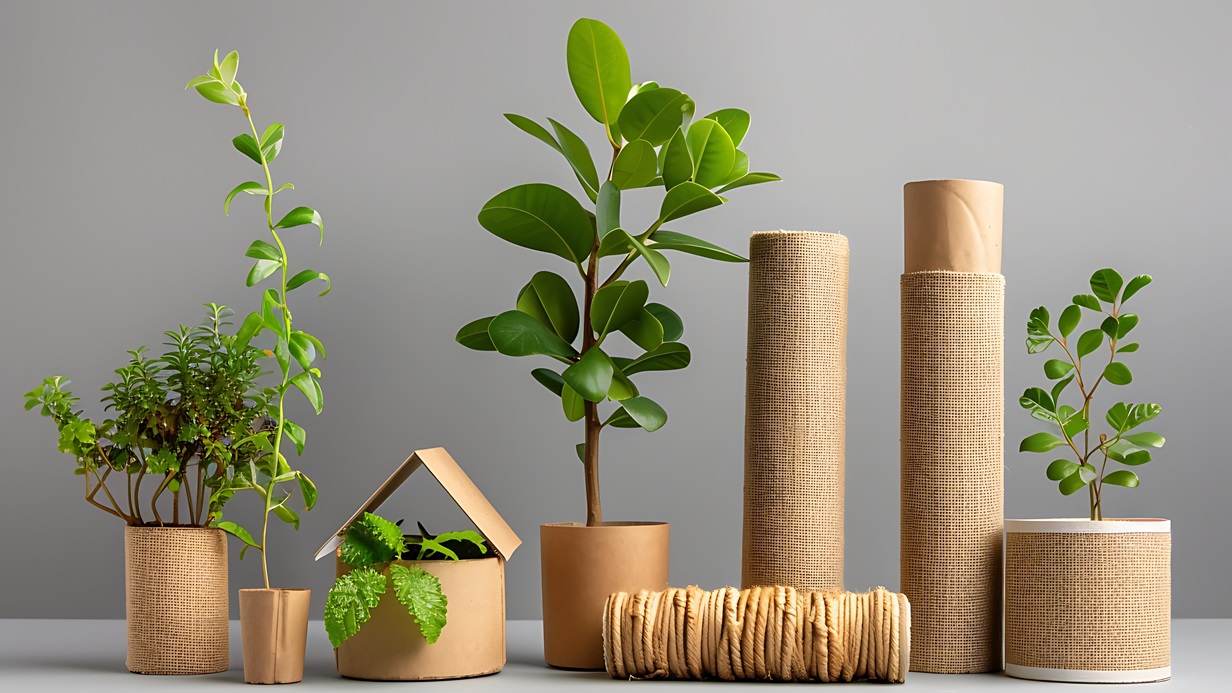
Teaching and Learning Conference
The annual Teaching and Learning Conference enables peer led workshops to share best practice and enable discussion on methods to incorporate ESD into module design. Examples include the School of Applied Sciences (SAS) who have mapped their geosciences courses to the SDGs, and the Huddersfield Business School who have been longstanding advanced signatories to the UN Principles for Responsible Management Education (PRME).
Public and business engagement - supporting arts and heritage
Heritage Open Days
The University’s campus includes a number of important heritage buildings, and public access is offered free of charge through regular Heritage Open Days developed with ‘Discover Huddersfield’.
Heritage Quay
The internationally-significant collections held in Heritage Quay (the University’s Archives and Special Collections service) are publicly-accessible. This facility is open seven days a week free of charge and contains diverse collections ranging from music to sport and from politics to industry.
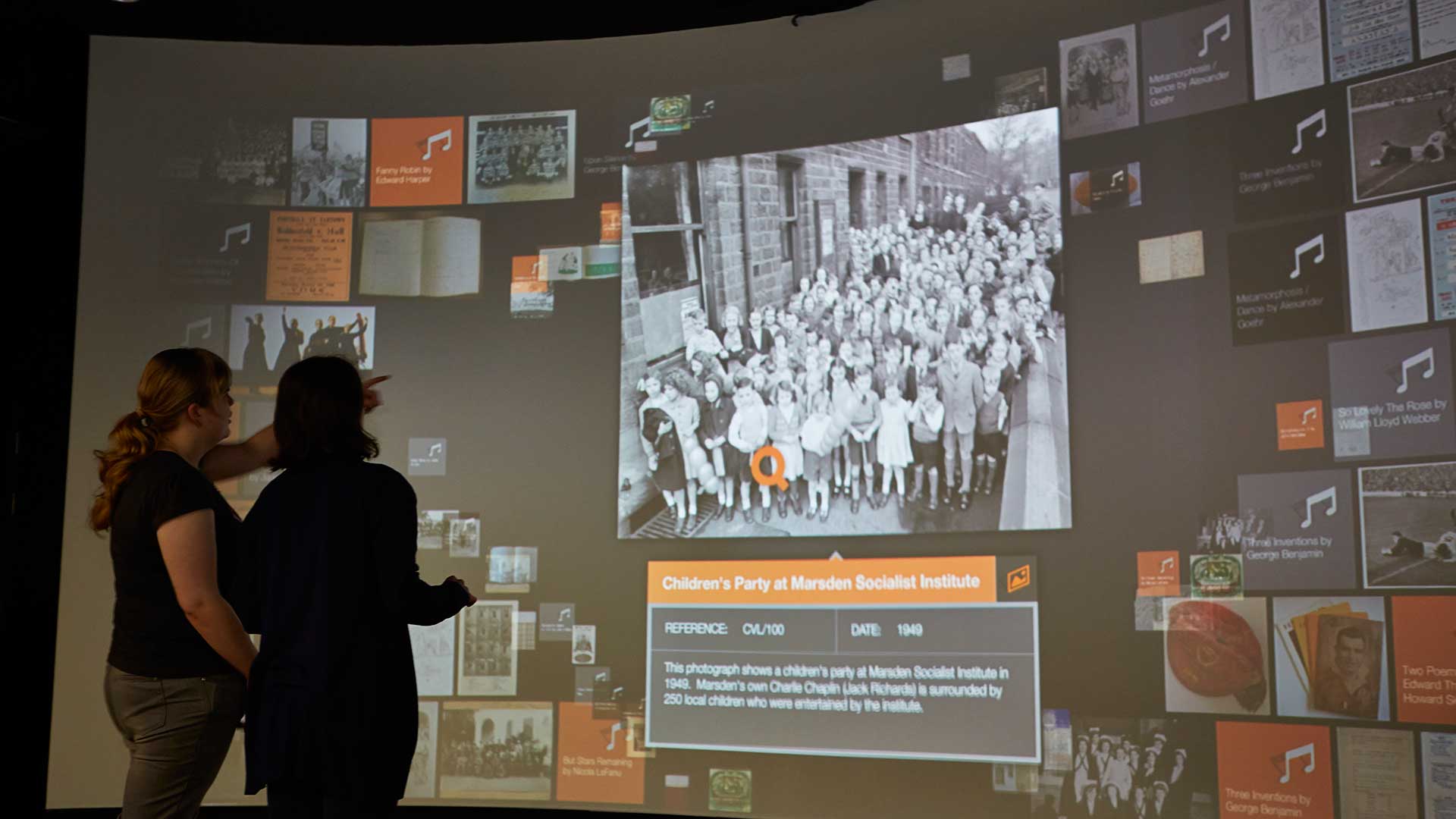
Supportive campus spaces
Sovereign Design House
The University’s art and design collections, and visiting exhibitions, are presented to the public in the Sovereign Design House. Formerly a bath house, it has been transformed into a café and art gallery and was among winners of the annual design awards from the Huddersfield Civic Society. The space is publicly accessible during opening hours (free of charge).
Holocaust Centre North
A partnership between the Holocaust Survivors’ Friendship Association and the University of Huddersfield, Holocaust Centre North is a permanent exhibition and learning enrichment museum located on the University campus. It tells a global history of the Holocaust through local stories of survivors who were inherently displaced people, refugees who made new lives in the North of England. The archive includes a growing collection of material from photographs and travel documents to filmed testimonies and telegrams, preserved and safeguarded for future generations. The Centre also works with local and regional communities and national cultural heritage, and has a learning programme for adults and primary and secondary school visits. The centre is also open to the public daily (free of charge).
University Library
The University’s Library welcomes members of the public to automatically use our facilities for reference purposes (free of charge), including print and audio-visual materials. In addition, they allow public access to our archives and special collections. Free and paid alumni and public membership schemes are also available for library loans.
Green spaces
The University is lucky to have a variety of open green spaces and natural habitats on campus, including the Huddersfield Narrow Canal, woodland and managed landscaped grounds. All spaces are permanently and freely accessible to staff, students and members of the public. The University has also collaborated with local community group, Environment Kirklees, on their ‘Greenstreams’ project designing short walks which incorporate parts of the University’s campus.
TemporaryContemporary
TemporaryContemporary, supported by the School of Arts and Humanities at the University and Kirklees Council, is an on-going project that provides a platform for original and inspirational exhibitions, performances and research. It aims to bring together academics, artists, local artisan producers, musicians, students and young people.
Contribution to local arts
The University makes major contributions to local performing arts activities, delivering over 100 performances to the public each year. A regular series of student performances in music and drama are open to the public, some free of charge. Annual music events based at the University include the Huddersfield Contemporary Music Festival, the UK’s largest international festival of new and experimental music and Electric Spring Festival, an annual festival of sonic exploration.
Net-Zero Design in Modular Construction
Researchers at the University have formed a Knowledge Transfer Partnership (KTP) with Actiform, a leading manufacturer of off-site engineered buildings, and aims to advance knowledge and implement BIM and Lean strategies to achieve net-zero carbon within the off-site construction sector.
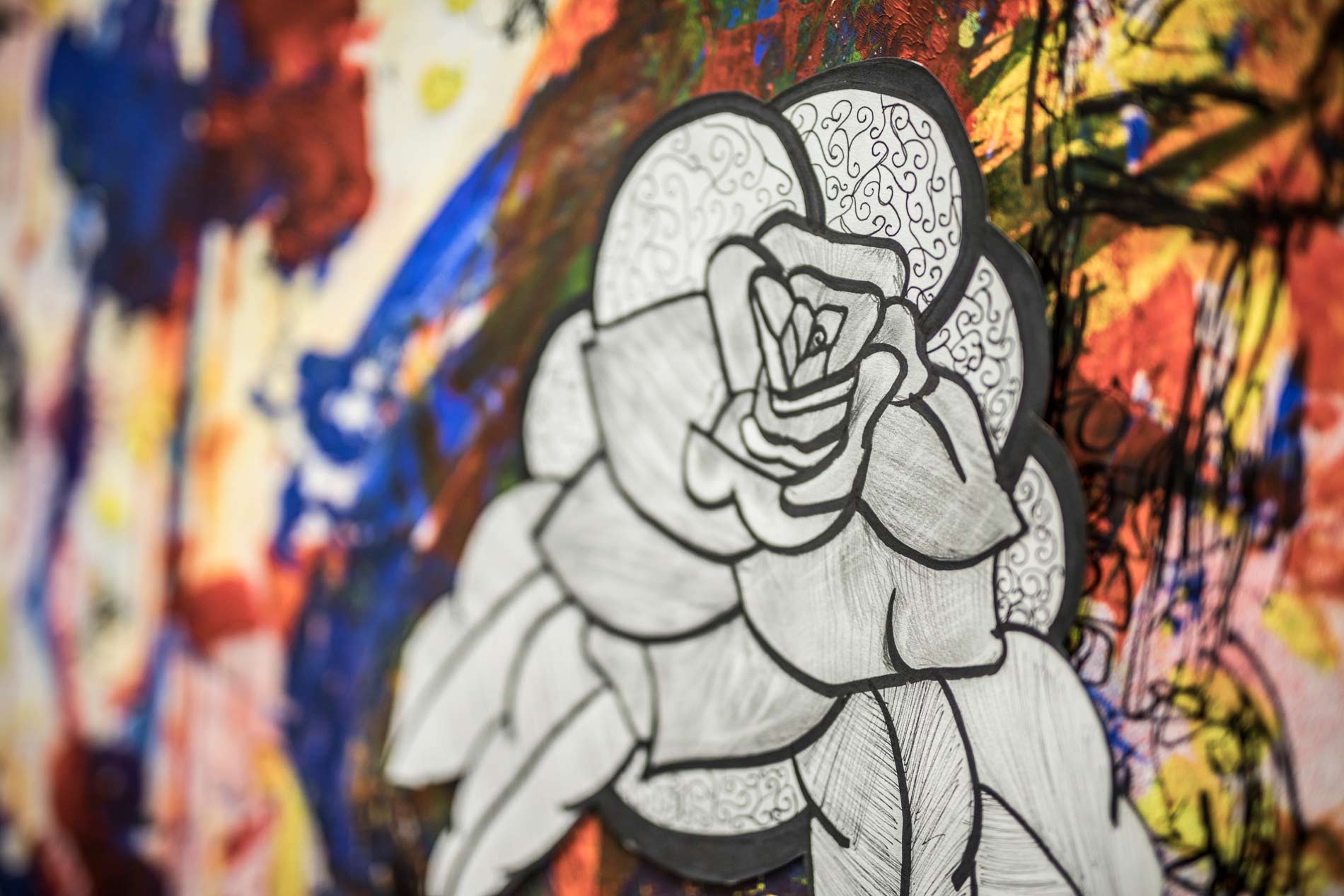
Operations - Sustainable practices
Sustainable travel
The University measures and sets targets for more sustainable commuting, promoting active travel, through it’s Travel Plan and Travel Policy. As part of the University’s Carbon Neutral Strategy: A Ten-Point Plan for the Planet adopted in 2020, the University commits to ‘reduce our travel impacts by investing in alternatives such as conferencing and distance-learning technologies, supporting public transport and active travel initiatives.’ The Travel Plan has ensured the successful delivery of university-wide sustainable travel initiatives including a reduction in car transport, a marked shift towards active travel, underpinned by significant investment in cycling facilities and infrastructure, introduction of a range of public transport incentives, strategic changes to car parking management, greater integration of sustainable travel into the campus development programme, and considerable efforts to engage staff and students through awareness activities.
We also include staff and student commuting in our Scope 3 emissions measurement, working towards our Net Zero Carbon Emissions Target by 2045. The University recognises that hybrid and remote working offers many benefits including improved wellbeing, enhanced productivity, better recruitment and retention of staff and reduced impact of commuting. Hybrid and remote working arrangements are available for all eligible Professional Support Services staff as set out in the University’s Hybrid Working Framework.

Pedestrian priority on campus
The University has worked to reduce the presence of and impact of cars on campus and has significantly reduced the number of car-parking spaces on the central area of campus in recent years, leading to a fully pedestrianised area with limited vehicle access. Hepworth park has been created, and the main university plaza has been landscaped with planting and outdoor seating.
Affordable housing
The University does not own any student accommodation but works with the Student Union-led Hudlets agency to provide some of the best value student housing in the region. They do not charge admin fees and work with halls of residence and private landlords to ensure students have access to high quality accommodation at a fair price.
For staff relocating to the area, the University provides advice and resources on where to find affordable accommodation in the local vicinity.
Operations - Planning and development
We build our new buildings to sustainable standards, seeking to achieve BREEAM Excellent ratings (best practice). We are also now committed to the WELL Building standard, which includes commitments in the design and management of buildings. The University achieved WELL Platinum for the Jo Cox ‘More in Common’ Centre, opened during 2022, and the Daphne Steele Building part of the new National Health Innovation Campus, which opened in September 2024.
We consistently build on brownfield sites, redeveloping existing areas of the main campus. For example, The Barbara Hepworth Building, home to the School of Arts and Humanities, was built on a former industrial site, and the new National Health Innovation Campus is currently being built on land that previously housed a carpark and sports centre.
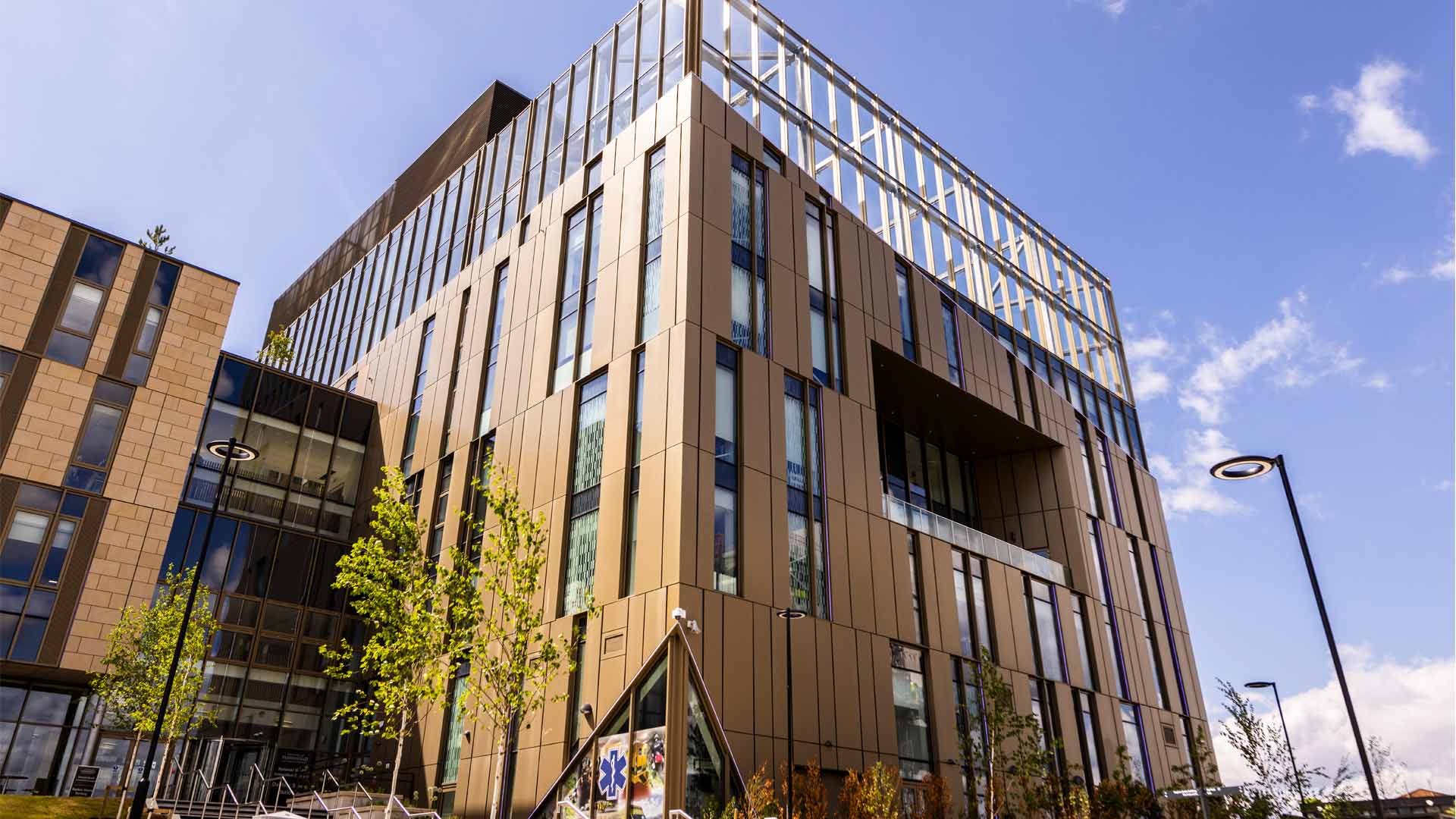
Our research
The University’s research and knowledge transfer activity is making a major contribution to sustainable cities and communities.
Collaboration with local authorities on planning and development
The University’s Healthy Housing Initiative works in partnership with local authorities to address planning and development challenges. This multidisciplinary team of committed researchers, practitioners, and advocates is driven by the belief that everyone deserves a safe and healthy home. With a vision of ensuring universal access to affordable, high-quality housing, the group conducts pioneering research on the links between housing and health, engages directly with communities, and collaborates with policymakers and practitioners to promote best practices and advocate for meaningful policy change.
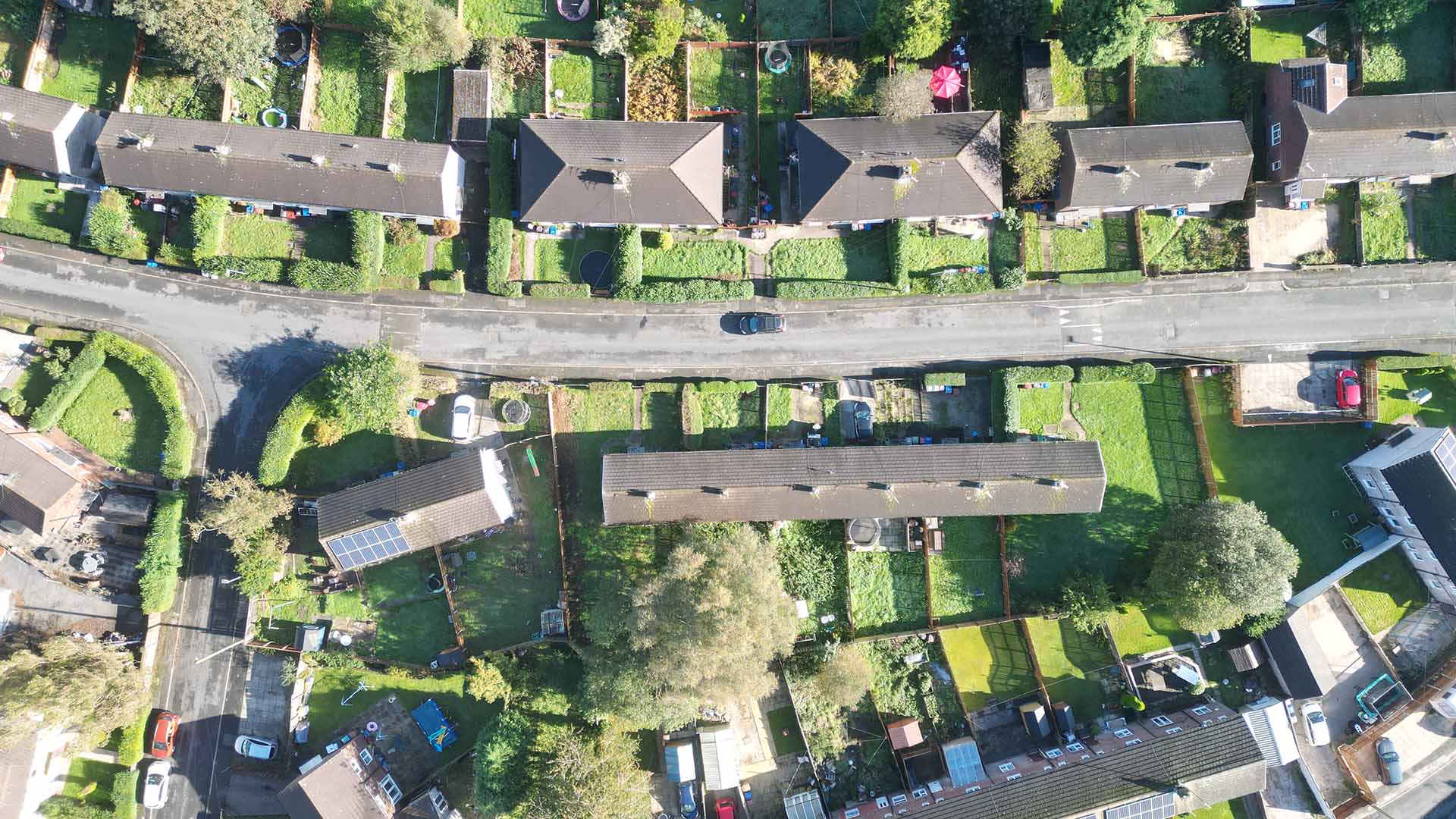
We're part of the Future Fibres Network+
The University is one of 5 institutions that comprise the £1.6m Future Fibres Network+, partnering with the UK Fashion and Textiles Association to prevent thousands of tonnes of waste textiles from going into landfill.
Institute of Railway Research
Awarded the Queen’s Anniversary Prize for "research and development that has brought significant improvements to the railway industry”, the Institute of Railway Research is a world class centre for railway engineering research and innovation. Our work has helped protect the railway’s most expensive assets, provide design assurance, reduce operating and maintenance costs, whilst increasing reliability and safety.
The institute has recently joined forces with the Institute for Transport Studies at the University of Leeds to form the Centre for Transport in Cities, which will drive forward West Yorkshire’s £2.5bn Mass Transit scheme.
Future Mobility Centre
The work of Professor Alexandros Nikitas from Huddersfield Business School through an international collaboration, focuses on developing innovative solutions to decarbonise transport, by integrating cutting-edge research on sustainable urban mobility, aiming to reduce carbon emissions and improve transport efficiency.
Find further information
WELL Building Standard
Explore the WELL Building Standard incorporating sustainability best practices into our newly constructed buildings such as our Jo Cox and Daphne Steele buildings.
Sustainability and environment
Explore our sustainability initiatives and how we aim to get students, staff and the community involved in committing to sustainability best practice.
Our university's history
Get to know the history behind our university and how we are committed to maintaining and celebrating our heritage to support a sustainable future for our community.
Sustainable Development Goals
Click to explore our other sustainable development goal pages and get to know how we're working towards these at the University of Huddersfield.
